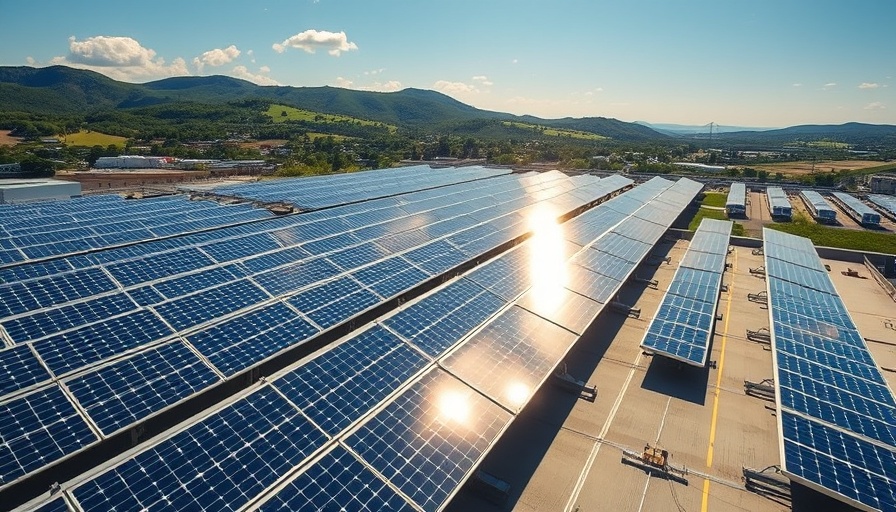
Malaysia and Singapore Lead Green Investment Surge in Southeast Asia
In 2024, the Southeast Asian landscape witnessed a remarkable shift towards sustainability, with Malaysia and Singapore collectively attracting more than 60 percent of the US$8 billion in green investments made across the region. This increase is indicative of a larger trend where private investments in green projects surged by an astonishing 43 percent compared to the previous year. The Bain & Company and Temasek report highlights this exciting growth, largely fueled by rising investments in solar initiatives and renewable-energy powered data centers.
The Case for Solar Power Investments
One standout feature of this investment boom was the fourfold increase in solar power funding in Malaysia. This surge follows the government’s push to adopt solar energy systems in both commercial and residential areas, allowing property owners to offset their electricity bills through rooftop photovoltaic systems. Notably, private deals focused on green hydrogen also totaled US$400 million, showcasing Malaysia's expanding portfolio in renewable energy sectors.
A Call for Balanced Regional Growth
While Malaysia and Singapore shine in green investment figures, the report indicates that the progress is uneven across the region. Countries like the Philippines and Vietnam, despite substantial advancements in solar and wind financing, still lag behind due to insufficient policies that foster sustainable investments. Remarkably, the Philippines has yet to announce a net-zero goal, contrasting with Vietnam's commitment to achieve net-zero emissions by 2050. This disparity emphasizes the need for more robust and cohesive climate strategies in order to close the annual funding gap, projected at US$50 billion by 2030.
Impacts of Climate Goals and Regulations
The report underlines how essential national climate goals are in driving eco-friendly investments. Researchers note that while some nations are diversifying their funding sources effectively, others are experiencing slow growth. It was pointed out that Malaysia's application of stringent green standards by local governments, particularly in Johor, reveals how regulatory frameworks can significantly shape investment landscapes. Ensuring data centers utilize renewable energy is just one example of how national policies can foster a more sustainable business environment.
The Urgency of Climate Action
Experts like Dale Hardcastle from Bain & Company stress that the window for effectively meeting climate pledges is shrinking. With less than five years left to achieve crucial 2030 climate targets, the need for coordinated and bold action is more pressing than ever. This includes not just financial investments, but also community engagement through initiatives such as sustainable living programs and educational campaigns on ecological footprints, which can facilitate the required cultural shift towards sustainability.
Engaging the Community Towards Sustainability
As consumers increasingly consider their environmental impact, initiatives like community gardens, zero-waste lifestyles, and the use of sustainable products become essential. These grassroots efforts not only help reduce plastic pollution and promote biodiversity, but they also foster a sense of collective responsibility among individuals. By engaging with local green businesses and supporting fair trade practices, communities can play a pivotal role in advancing the agenda for a sustainable future.
Future Trends for Green Investments
Looking to the future, it is crucial to recognize the evolving nature of green technology and its role in climate mitigation. Innovations in energy efficiency, sustainable agriculture, and eco-friendly materials are set to reshape markets and consumer preferences. As countries navigate this transition, aligning business goals with climate action will be paramount; enterprises need to consider their carbon footprints and the sustainability of their sourcing practices.
In conclusion, the significant growth of green investments in Malaysia and Singapore holds promise, yet it must inspire an integrated approach that includes all nations in Southeast Asia. To achieve a sustainable future, countries must harmonize their efforts, reinforcing commitments through effective policies and community-based initiatives. Now is the time to embrace these challenges and work together towards creating a greener, more sustainable world.
As an eco-conscious reader, consider how your choices impact the environment. Explore green energy solutions and sustainable practices in your daily life to contribute to the global effort against climate change.
 Add Row
Add Row  Add
Add 



Write A Comment